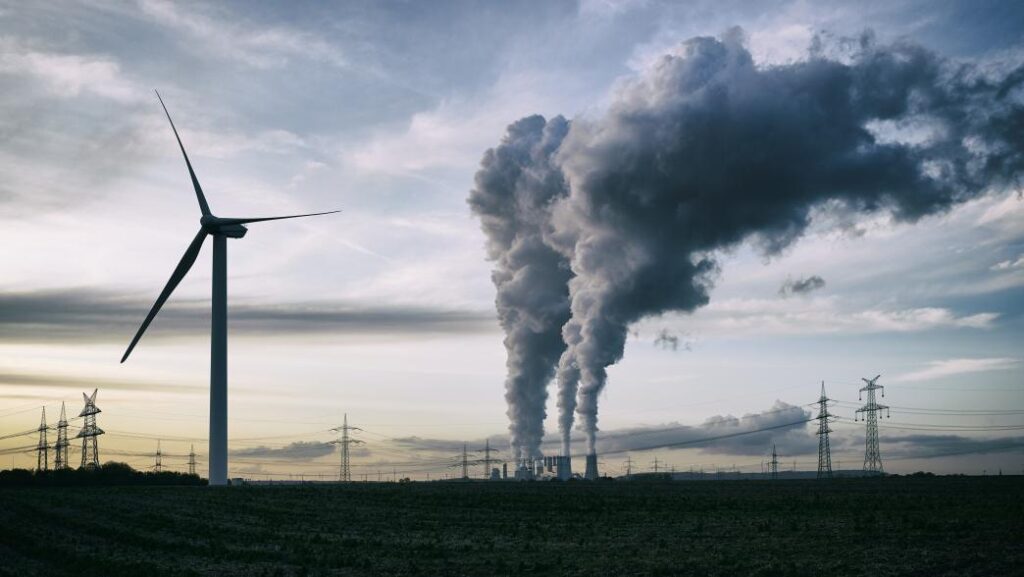EU’s CO2 emissions from fossil fuels drop 8%, reaching the lowest levels in 60 years – CREA Reports

Key findings
- The EU’s CO2 emissions from fossil fuels saw a year-on-year drop of 8% in 2023, reaching levels unseen since the early 1960s. This is the second steepest decline observed since the emissions drop in 2020 which was heavily influenced by the COVID-19 pandemic.
- More than half of the decline (56%) stems from a cleaner electricity mix, with the continuous rise of wind and solar capacity as well as a rebound in hydropower and nuclear availability.
- The EU achieved a notable 25% year-on-year reduction in CO2 emissions from power generation, while other sectors declined by 4%.
- EU’s CO2 emissions from coal have halved since 2015, and saw a year-on-year decrease of 25%. Gas-related emissions declined by 11%, and oil emissions by 2%, compared to the previous year.
The EU’s progress in reducing emissions has accelerated significantly in 2023. A new research paper produced by the Center for Research on Energy and Clean Air (CREA) found that the bloc’s annual CO2 emissions from fossil fuels dropped 8% in 2023, reaching levels unseen since the early 1960s. More than half of this reduction comes from a cleaner electricity mix.

RELATED ARTICLE: EU Strikes Deal to Cut CO2 Emissions from Heavy-Duty Vehicles
Cleaner electricity production contributed to 56% of the reduction in emissions — due in part to continuous growth of solar & wind as well as a rebound in hydropower and nuclear availability. A decrease in electricity demand contributed 8%, while reductions in other sectors, primarily industry and transport, accounted for the remaining 36%. Weather conditions were favourable again this year and were responsible for 19% of the electricity demand reduction.
Coal consumption — which had risen in 2021 and 2022 — has now dipped below pre-pandemic levels. CO2 emissions from coal have seen a year-on-year decline of 25% and have nearly halved since 2015 (-48%). Fossil gas also saw a significant decline with estimated emissions falling by approximately 11%.
“Though these are initial estimates, they bring a wave of hope,” Hubert Thieriot, Data Lead at CREA said. “The EU has seen a significant reduction in CO2 emissions, primarily fueled by the advancement in low-carbon electricity sources. However, this decline also reflects a unique convergence of factors that may not recur in 2024, including a surge in hydropower availability, a warm winter and an economic slowdown. To meet its 2030 and 2050 targets, the EU must redouble its efforts and commitment towards electrification and development of low-carbon sources of energy.”
“In 2023, EU CO2 emissions have finally fallen back to levels apparent in my parents generation in the 60s. Yet, over this time period, the economy has tripled, showing that climate change can be combated without foregoing economic growth,” said Isaac Levi, Europe-Russia Policy & Energy Analysis Team Lead at CREA. “The 8% reduction in emissions should be celebrated but more must be done to wean the EU off fossil fuels, reduce reliance on petrostates such as Russia, whilst also leaving the world a better place for the next generation.”
The EU’s gains in reducing emissions are due in part to a shift away from fossil fuels. CREA believes that for sustained growth, this shift must extend beyond the immediate concern of dependency on Russia. It is crucial to diversify energy sources and smoothen the transition to clean energy. A commitment such as this will not only enhance energy security but also aligns with the EU’s climate objectives, ultimately mitigating greenhouse gas emissions.








